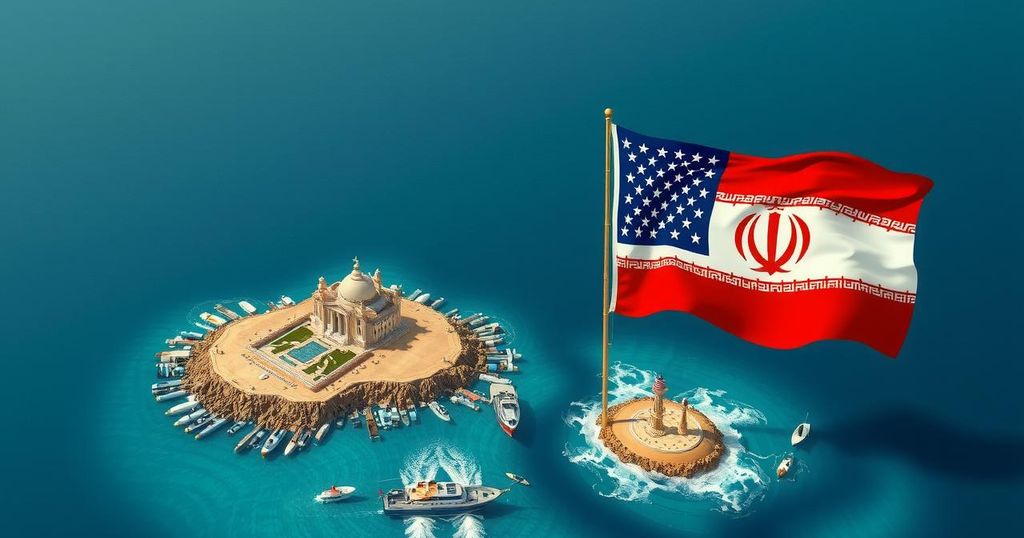Iran and the UAE dispute control over three islands in the Strait of Hormuz, critical for oil exports. Iran has controlled these islands since 1971, while the UAE contests this claim, reflecting broader regional conflicts over resources and power.
The territorial dispute over three strategically located islands—Abu Musa and the Greater and Lesser Tunbs—between the Islamic Republic of Iran and the United Arab Emirates (UAE) has persisted since the early 20th century. These islands are situated in the Strait of Hormuz, a crucial maritime passage for oil exports, amplifying their geopolitical significance. Both nations assert historical claims; however, Iran has maintained effective control over the islands since 1971, which the UAE contests. This conflict is emblematic of broader regional tensions, where both countries seek to exert dominance over valuable resources and strategic maritime routes.
The islands in question hold not only strategic military value but also significant economic implications due to their proximity to one of the world’s busiest maritime routes. Control of this area allows for influence over shipping lanes that are vital for oil exports. Recognizing the importance of these waterways, both Iran and the UAE have engaged in diplomatic efforts, international lobbying, and military posturing to solidify their claims, which is indicative of ongoing power dynamics in the Persian Gulf region.
In conclusion, the territorial dispute over the three islands serves as a microcosm of larger geopolitical rivalries in the Persian Gulf, where natural resources and strategic locations are contested by regional powers. As both Iran and the UAE seek to reinforce their claims, the issue remains a flashpoint that could potentially escalate into broader conflicts, embodying the complexities of international relations in this resource-rich area.
Original Source: www.rferl.org






